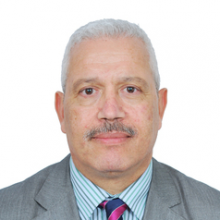You are here
North African feminism's growing impact
Apr 10,2023 - Last updated at Apr 10,2023
FEZ — North African feminists’ work has made significant contributions to improving the prospects for democratisation in the region in recent years, particularly in Morocco. By promoting women’s empowerment through education, emancipation from social constraints and knowledge production, feminists have kept progress alive, despite constant challenges and setbacks.
For example, while three Maghreb countries responded to the 2011 Arab Spring uprisings by enacting laws to increase women’s political representation, Tunisia has recently slipped back towards autocracy. As of 2022, representation of women in the region’s parliaments varied widely. In Tunisia, the share of women in the national assembly decreased to 16 per cent, from 26 per cent in 2014. In Algeria, women’s representation fell from 31 per cent in 2017 to 8 per cent in 2021. By contrast, women’s representation in Morocco’s parliament increased from 21 per cent in 2016 to 24.3 per cent in 2021.
The environment for women’s participation in the region varies in other ways as well. In Algeria, women’s organisations that advocate social and cultural rights tend to enjoy relatively more autonomy and liberty than those focusing on political and civil rights, but even the former group is hindered by limits on freedom of expression and poor funding.
Likewise, in Morocco, the women’s movement has struggled to achieve political and financial autonomy vis-à-vis the government, political parties and other institutions. Women’s groups work hand in hand with democratic organisations and government agencies on specific projects such as promoting literacy and education, reproductive health, and micro credits. Moreover, the government maintains an annual budget for women’s NGOs working to achieve gender equity and sustainable development.
Whereas Moroccan and Algerian feminism was very strong between 2000 and 2010, Tunisia’s movement took off after the Arab Spring, owing to the threat posed by Islamist parties and movements. We know this because of the increase in demonstrations, street protests, sit-ins and petitions signed. In all three countries, women’s movements have successfully used both traditional and social media to reach a wider audience, and to ensure that women’s voices are heard both on the street and in the halls of power.
Thanks to these efforts, Morocco has introduced both legal and political reforms (amending the constitution, reforming the family code, increasing women’s representation, and so forth), and women’s participation in civil society has increased. Public spaces have been feminised, and traditional gender roles have gradually begun to change.
In Tunisia, even when Islamists came to power, feminist activists still managed to convince the first interim government to commit to the United Nations Convention on the Elimination of All Forms of Discrimination Against Women. Since August 16, 2011, Tunisian law has recognised equality in marriage, divorce and custody. More recently, Tunisia’s feminist movement successfully pushed through a new law that provides for greater gender equality in inheritance.
As these examples show, the women’s movement in North Africa has made major strides in raising awareness about the importance of women to economic, social and cultural development. In the process of advancing women’s rights, feminists have also made vital contributions to democratisation and modernisation. While secular feminists have rallied with progressive and democratic forces, women have also worked within the Islamist movement to secure important social and political gains, such as more seats in parliament and decision-making positions in government, since the Arab Spring.
To be sure, although gender quotas, new family laws, and other reforms have strengthened women’s political participation and representation, other positive effects can be more difficult to quantify. Many social, cultural and economic factors are in play, and the success of any reform will always depend on the country and the initial scale and scope of its gender-based disparities. According to the World Economic Forum’s 2022 Global Gender Gap Report, North African countries have managed to close their gender gaps in education, health and employment by 50 per cent. In Morocco, female illiteracy fell from 78 per cent in 1962 to 2.4 per cent in 2021.
Overall, feminists’ efforts have transformed gender roles in Algeria, Morocco and Tunisia, and secured hard-fought real-world gains for women and girls. But though women have benefited from their relatively improved political participation and representation, they still constitute a minority in leadership positions. Despite recent reforms, substantial legal, social, economic and political inequalities between men and women remain.
As such, many feminists are now focusing on changing the public’s mindset and consolidating women’s presence in public spaces and decision-making positions. They are pursuing new institutional and social reforms not only to expand political representation but also to make up for decades of discrimination and exclusion. Despite the unexpected backlash following the Arab Spring, women are working together and building coalitions to address their fundamental concerns. The uprisings a decade ago gave women hope and showed them what they could achieve through political organising and by framing collective demands.
The future of women’s rights in the Maghreb remains uncertain, but the meaningful gains made over the past decade offer hope for further progress toward equality. While more work remains to be done to fight discrimination and protect traditionally marginalised communities, more and more women are now seeking ways to build on the legacy of the Arab Spring. This civic awakening is not going away.
Moha Ennaji is professor of Linguistics and Gender Studies at the University of Fès, Morocco. He is the editor, most recently, of “Minorities, Women, and the State in North Africa and Moroccan Feminisms”. Copyright: Project Syndicate, 2023.

- Popular
- Rated
- Commented
Apr 08, 2025
Apr 09, 2025
Newsletter
Get top stories and blog posts emailed to you each day.












